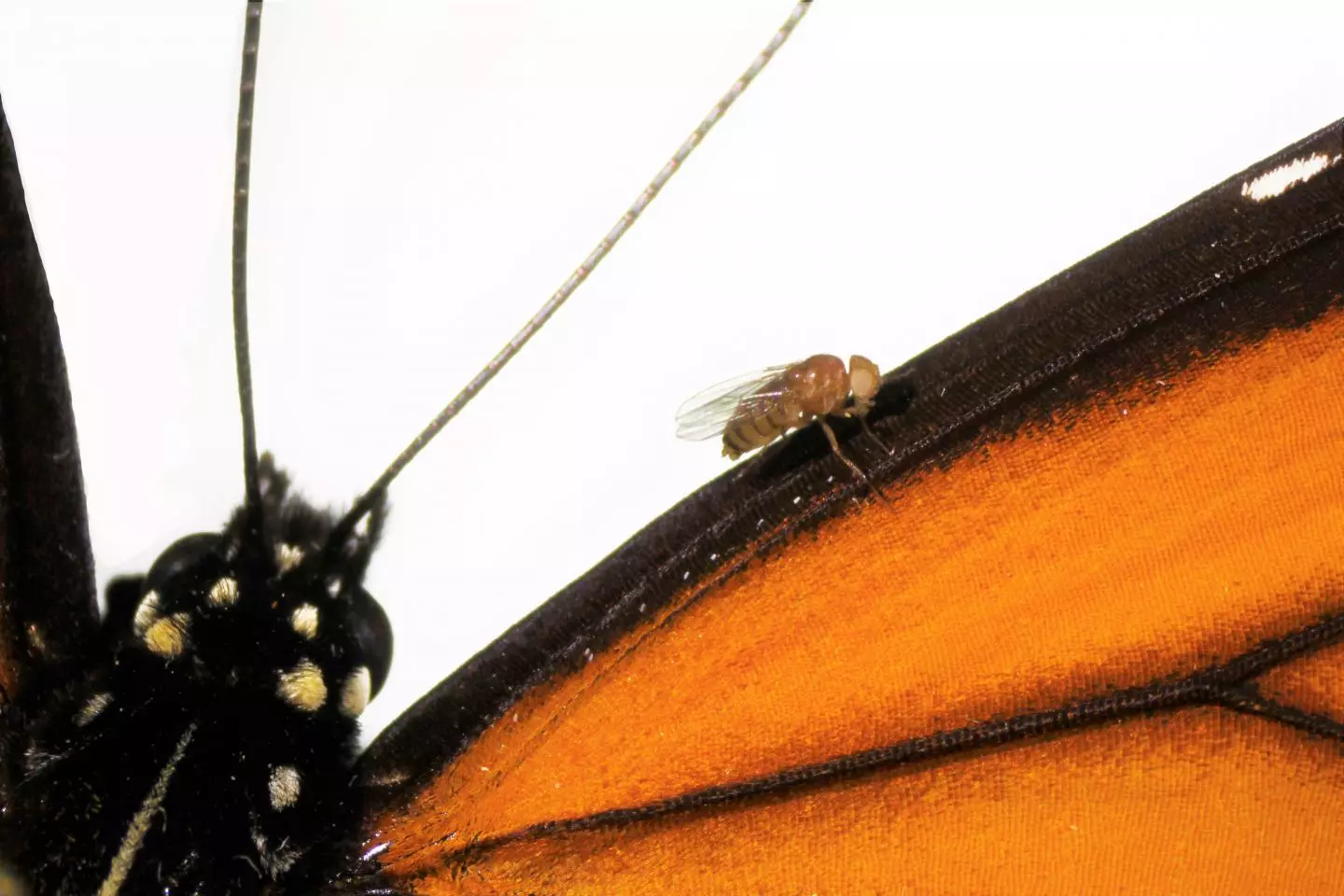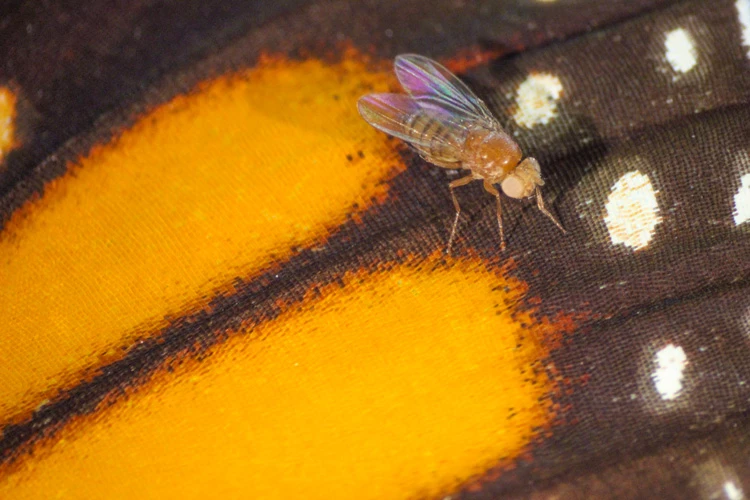Scientists at the University of California, Berkeley have used the CRISPR gene-editing tool to give fruit flies an evolutionary advantage they’ve never had before. By making just three small changes to a single gene, the team gave the flies the ability to effectively eat poison and store it in their bodies, protecting themselves from predators in the process.
Milkweed is a common plant that’s toxic to most animals and insects – but the monarch butterfly flies in the face of that plant’s defenses. The bug has evolved the ability to not only thrive on the poisonous plant, but turn it to its own advantage. It stores the toxins in its body, making it poisonous to any predators that might try to eat it.
And now, the UC Berkeley researchers have given fruit flies that ability for the first time. CRISPR has been used to edit the genes of insects, mammals and even humans, but the team says this is the first time a multicellular organism has been edited to endow it with new behaviors and adaptations to the environment. In this case, that means a new diet and a new defense mechanism against predators.
The researchers first looked at the butterfly genes that are believed to let them dine on milkweed, and then tried to recreate those specific mutations in the fruit flies. They found that a single gene is responsible, and they only had to substitute three nucleotides in that gene to give the flies the same superpower.
The edited fruit fly maggots were able to thrive on a diet of milkweed, storing those toxins in their bodies, and these abilities stayed with them even after they underwent metamorphosis and became adult flies. The mutation allowed the insects to be 1,000 times less sensitive to the milkweed toxin than wild fruit flies.

“All we did was change three sites, and we made these superflies,” says Noah Whiteman, lead author of the study. “But to me, the most amazing thing is that we were able to test evolutionary hypotheses in a way that has never been possible outside of cell lines. It would have been difficult to discover this without having the ability to create mutations with CRISPR.”
The gene at the center of the study builds the flies’ sodium pumps, a vital part of the cell that maintains the right balance of sodium ions. The milkweed toxin is known to clog this mechanism with deadly consequences, but the monarch butterfly (and now the fruit fly) has mutations that allow it to get around this problem.
Interestingly, the three mutations have to happen in a certain order to work. The team found that two of the mutations gave the insects a strong resistance to the poison, but also seriously affected their nervous systems. The third mutation cancels out the negative effects, leaving just the toxin resistance.
The study has important implications not only for our understanding of how evolution works, but also potentially widening the use of the CRISPR gene-editing tool as a way to direct evolution of new traits and behaviors.
The research was published in the journal Nature.
Source: UC Berkeley




